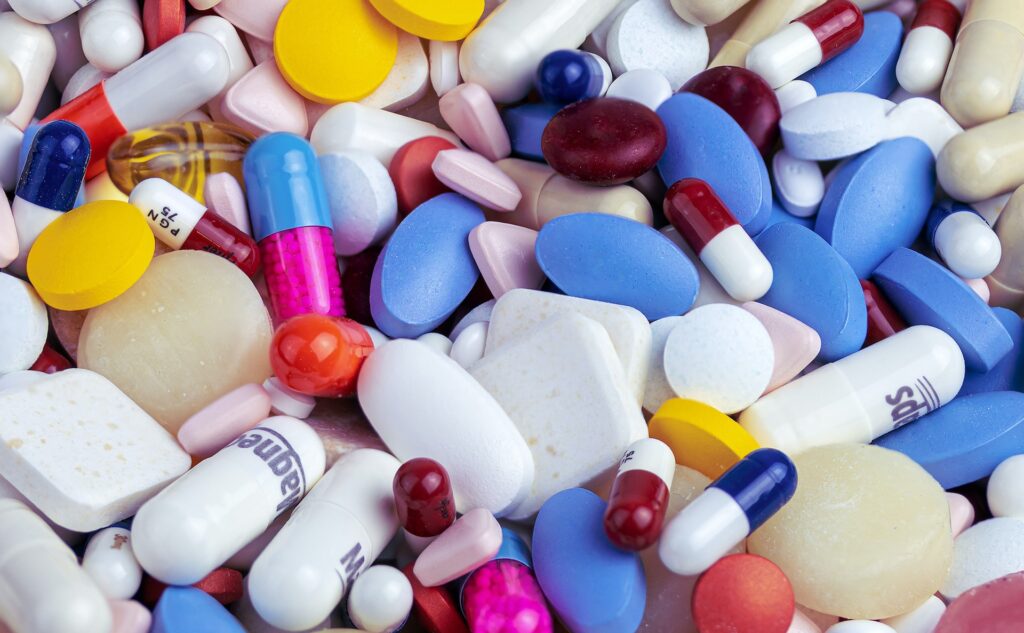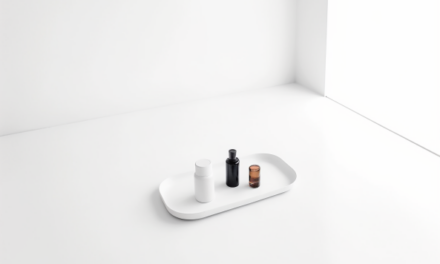Can Supplements Cause Acne?
While hormonal imbalances, genetics, and poor skincare habits are well-known causes of acne, did you know that some medications and supplements can also cause acne breakouts? Certain vitamins, minerals, and supplements like B6/B12, iodine, whey protein, and muscle-building supplements can trigger acne, as can medications like steroids, birth control pills, and anti-tuberculosis drugs. In this post, we’ll explore the different types of drugs and supplements that can cause acne and how they affect your skin

Supplements that might cause acne
Vitamin B6 and B12 supplements
Taking too much Vitamin B6 and B12 can cause or make acne worse, especially for women. For example, taking more than 5 to 10 mg of Vitamin B12 per week, or taking it for a long time, has been reported to cause acne. But, it’s important to remember that the right amount of both vitamins B6 and B12 is important for your overall health and skin.
Iodine, including seaweed supplements
Excess iodine can lead to acne breakouts or worsen existing acne. Iodine is also found in supplements like kelp seaweed and teas. There is a theory that the connection between dairy consumption and acne in some patients could be due to the iodine content in milk, which comes from animal feed and milking solutions containing iodine.
It’s worth noting that the only cases of iodine-induced acne that have been medically documented were from taking oral iodine supplements or drugs. However, it’s possible that topical cosmetics with iodine, such as kelp or other seaweed, could also contribute to acne through causing local irritation in skin.
Please remember that normal levels of iodine are needed for your health.
Whey protein
There have been reports of various whey protein supplements causing or worsening acne. Whey protein is a common ingredient in protein shakes, as well as power bars and other sports nutrition products.
Anabolic-androgenic steroids (AAS)
These are supplements used by bodybuilders to increase muscle mass. A common side effect of these steroids is acne. Even if bodybuilders are not intentionally using steroids, they may still be present in other muscle-building supplements they take. In a study of 776 supplements from the FDA Tainted Supplements database, 89% of “muscle building supplements” were found to be contaminated with steroid-like ingredients or synthetic steroids.
Sources
-
Acne related to dietary supplements https://escholarship.org/uc/item/9rp7t2p2
-
Drug-induced acne https://www.sciencedirect.com/science/article/abs/pii/S0738081X16302681
-
Acne and Drug Reactions https://link.springer.com/chapter/10.1007/978-1-4471-6729-7_15
Related Articles
Winter Skin Care: Navigating the Chilly Season with Healthy Skin
Let’s dive into understanding winter skin and how to best care for it.
Azelaic Acid: How It Works and Why You Might Need It In Your Skincare
Azelaic acid may not be the most hyped skincare ingredient, but, frankly speaking, it deserves way more recognition. Despite its underappreciated status, azelaic acid boasts a myriad of evidence-backed benefits, including combating acne, mitigating rosacea, addressing hyperpigmentation, and fighting against free radicals.
Does Bakuchiol Help With Acne?
Discover how Bakuchiol, a plant alternative to retinol, can help combat acne. Dive into the latest research findings, learn the effective concentration and application tips, and uncover why Bakuchiol might be your new go-to for clear, happy skin.




